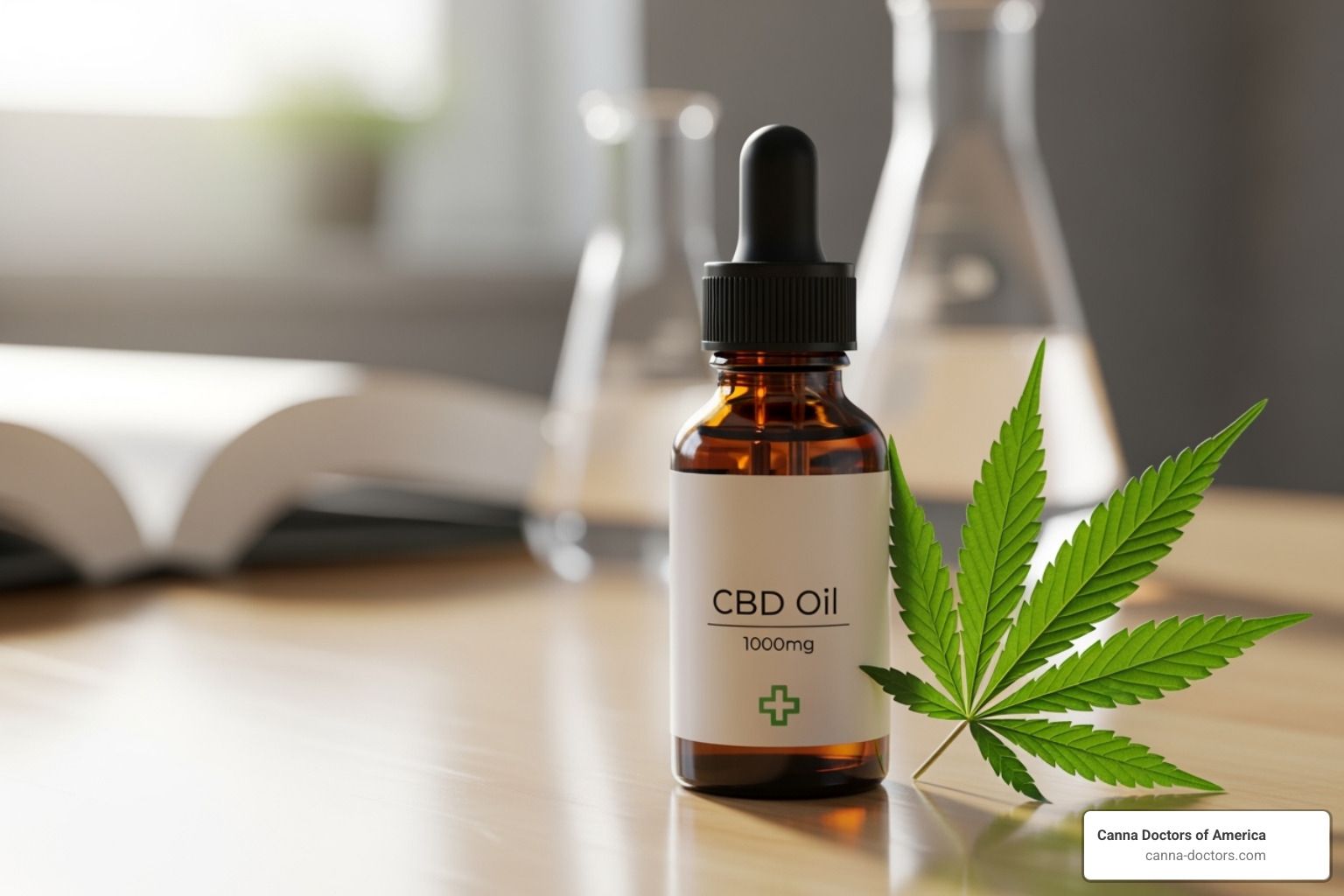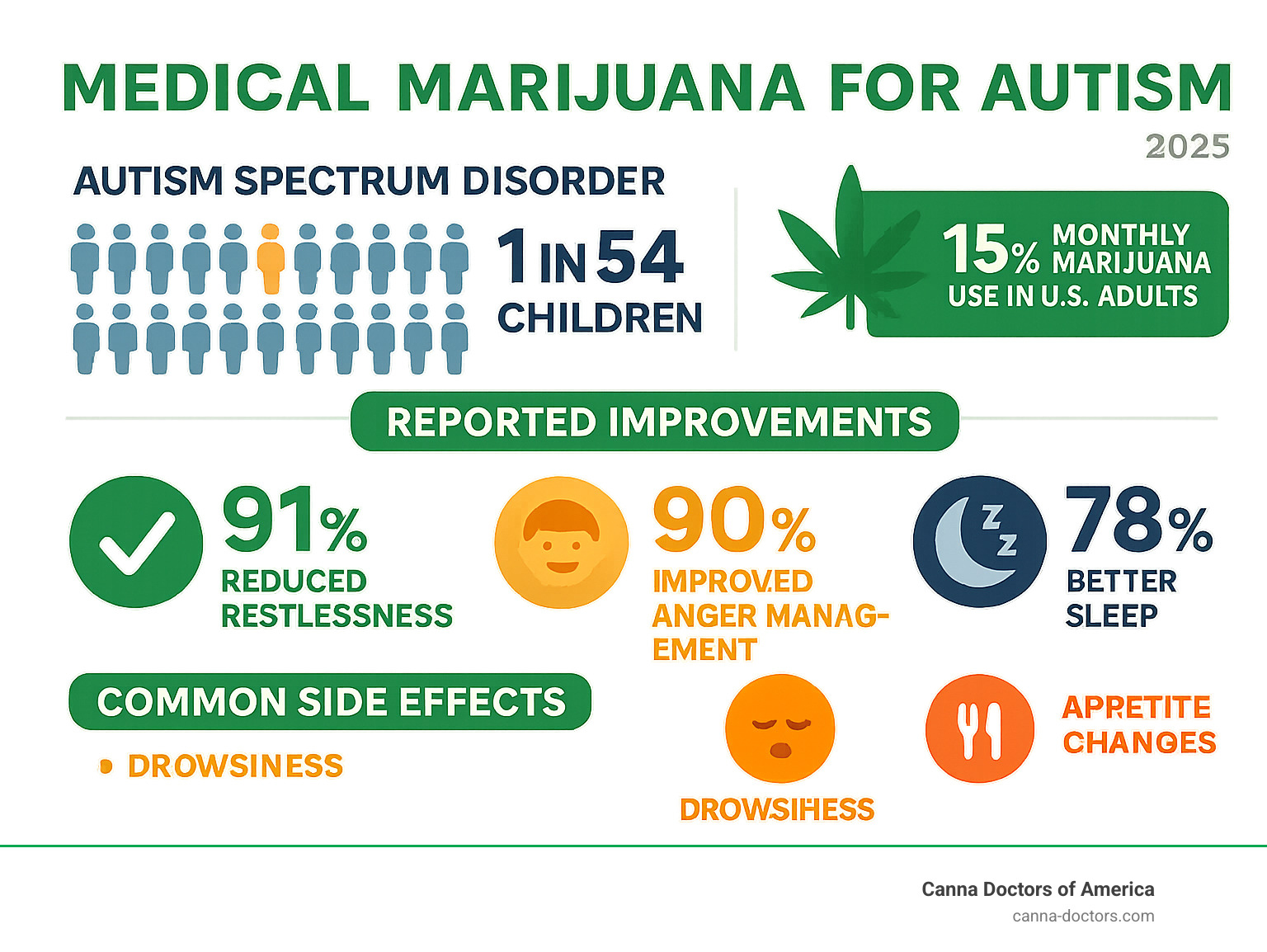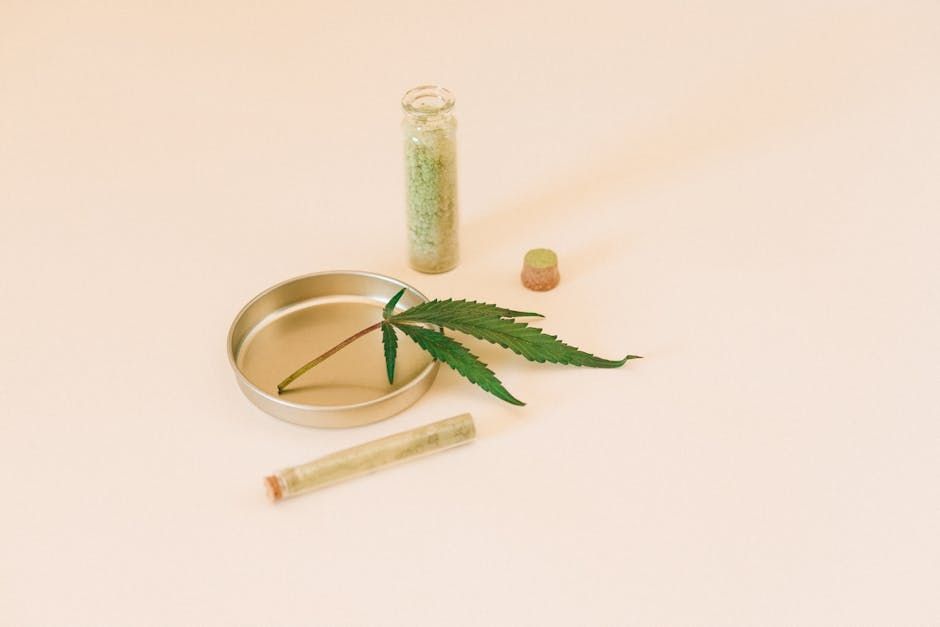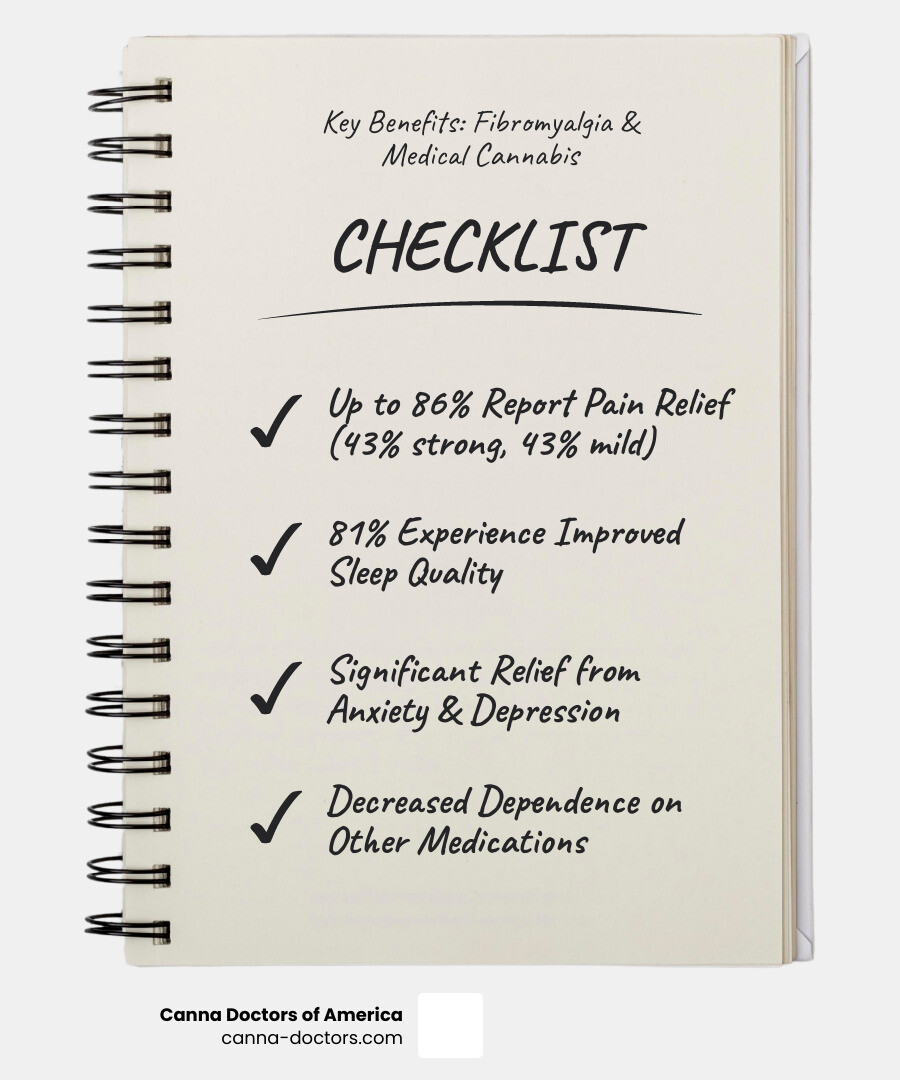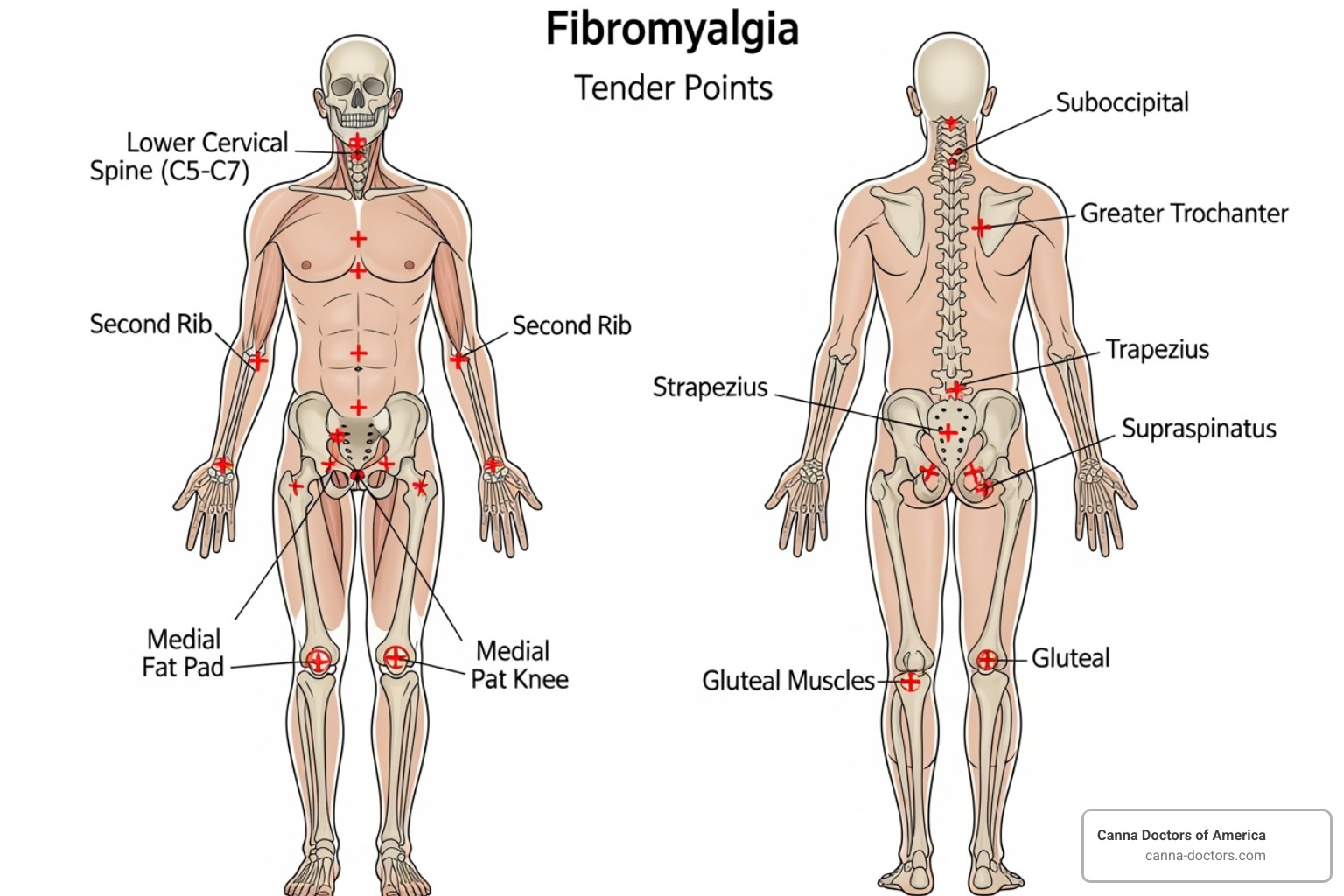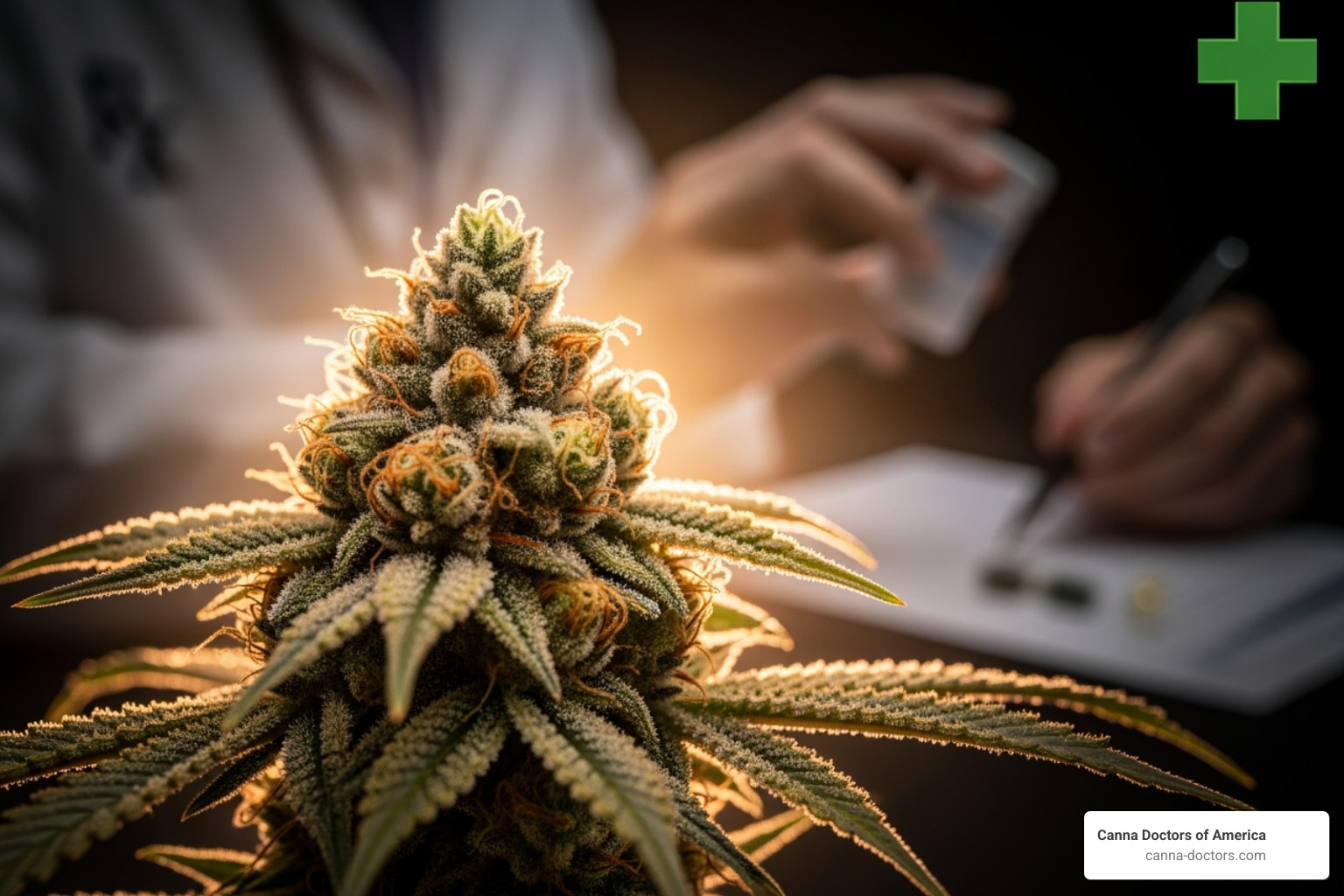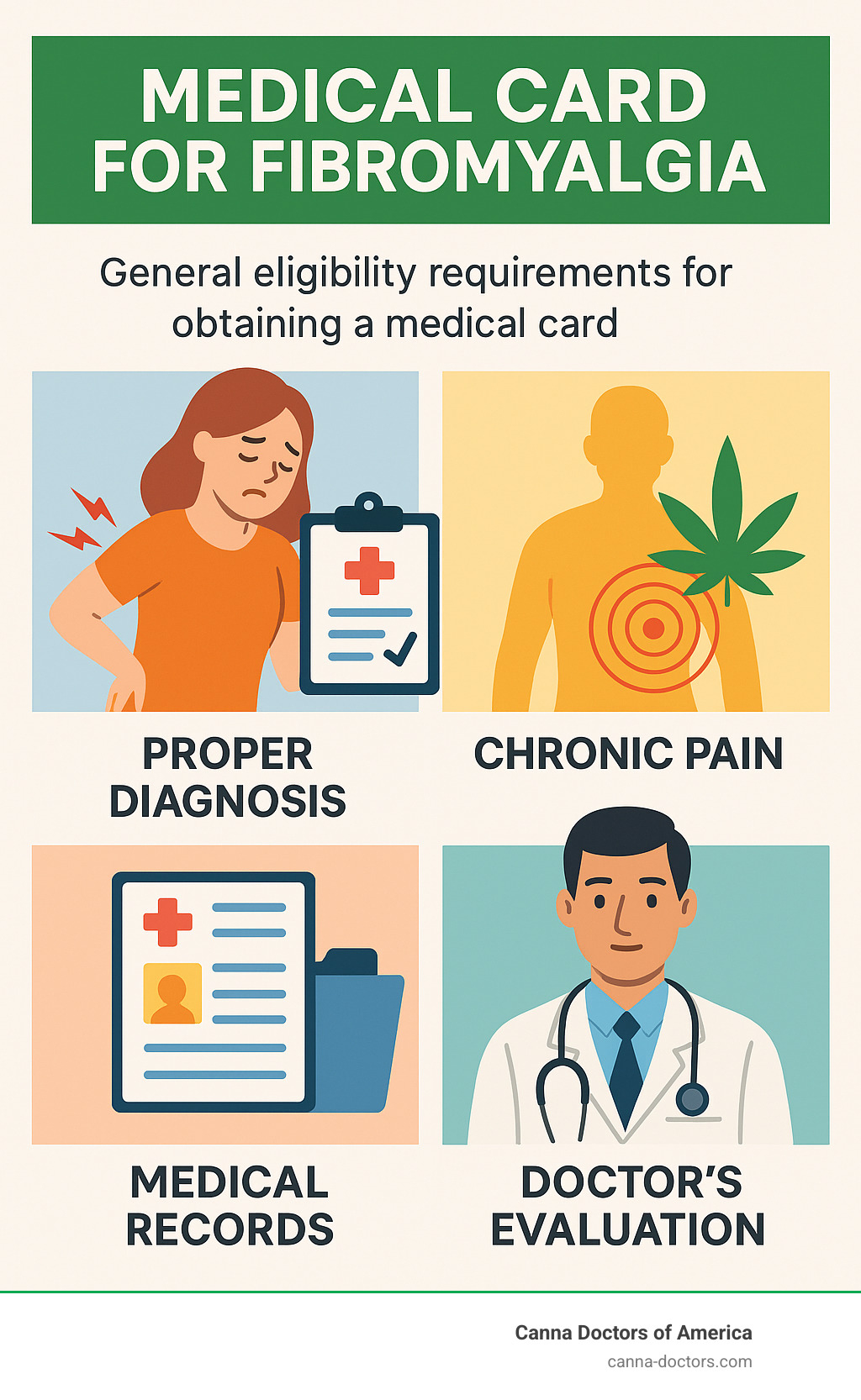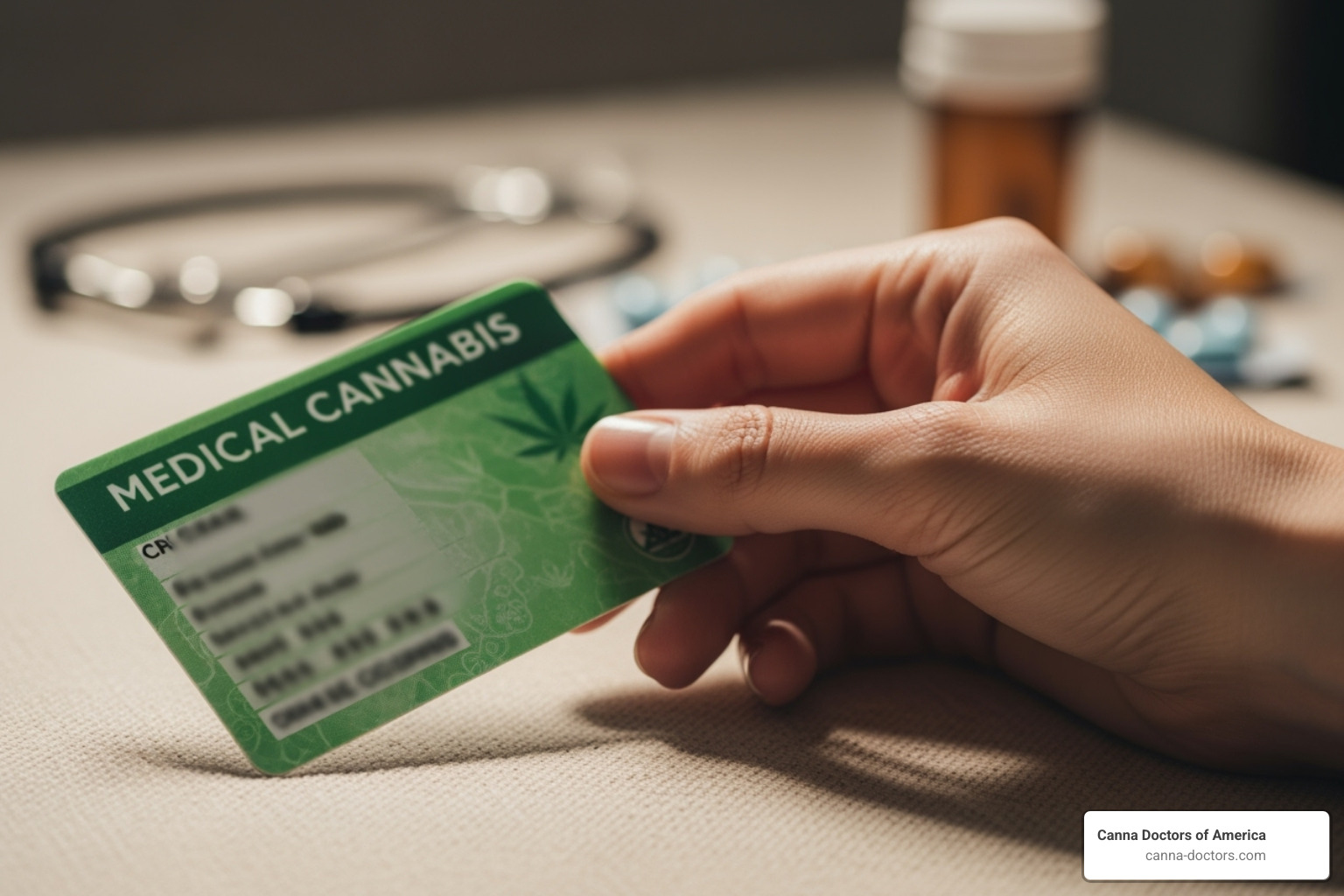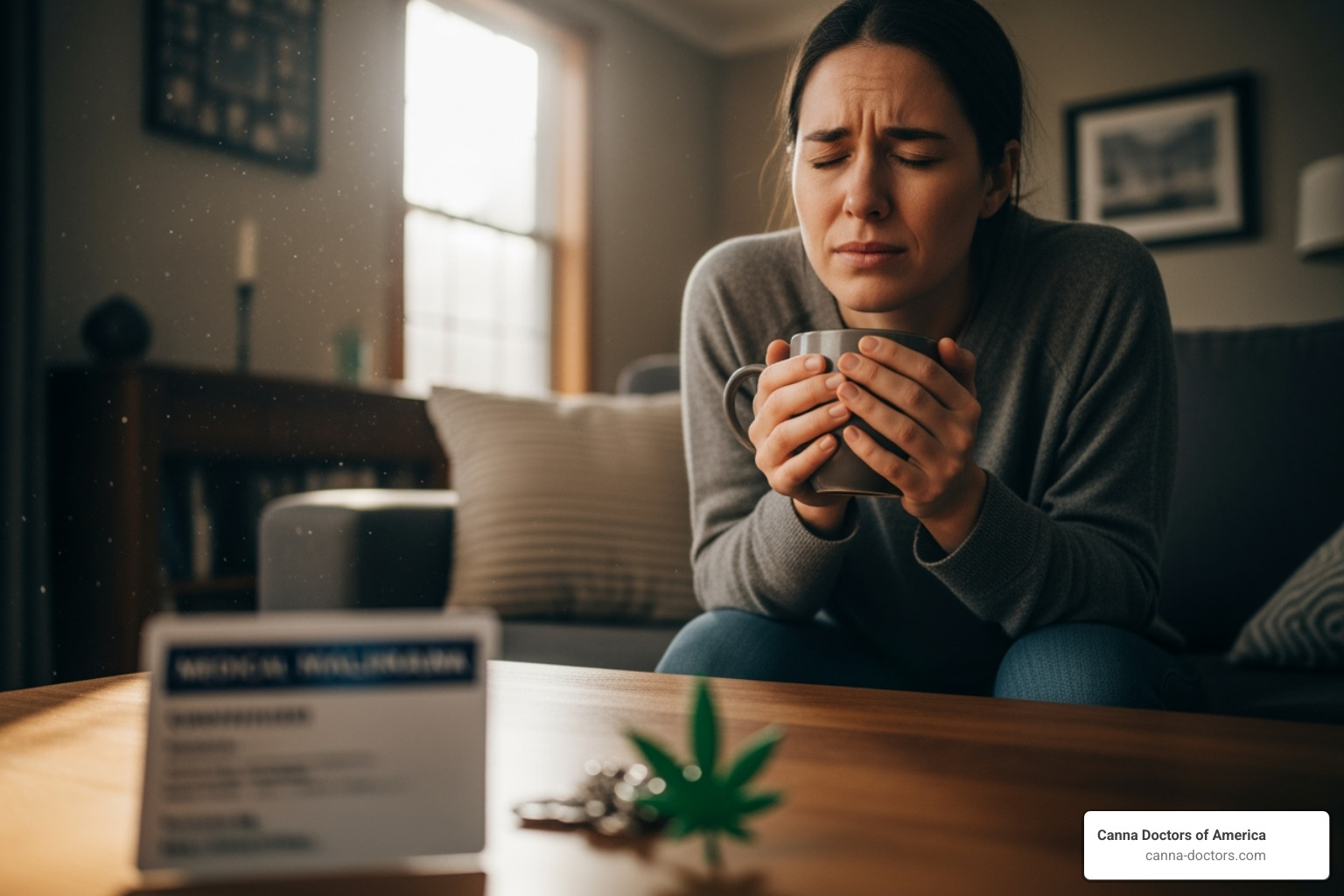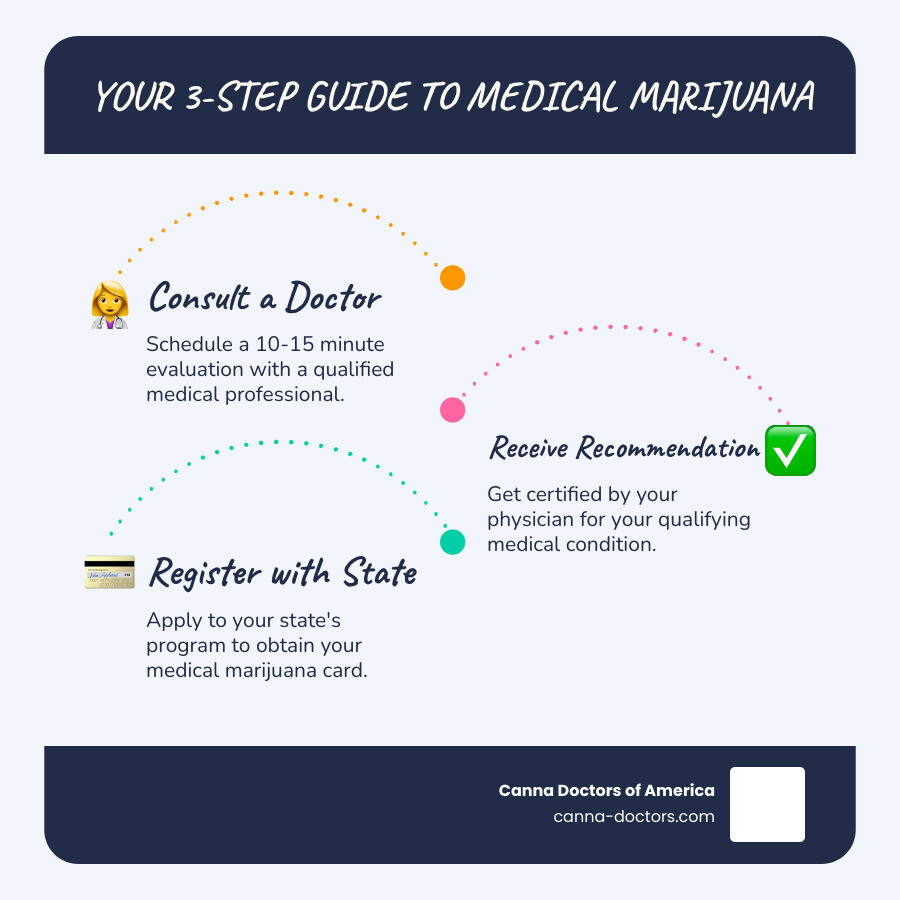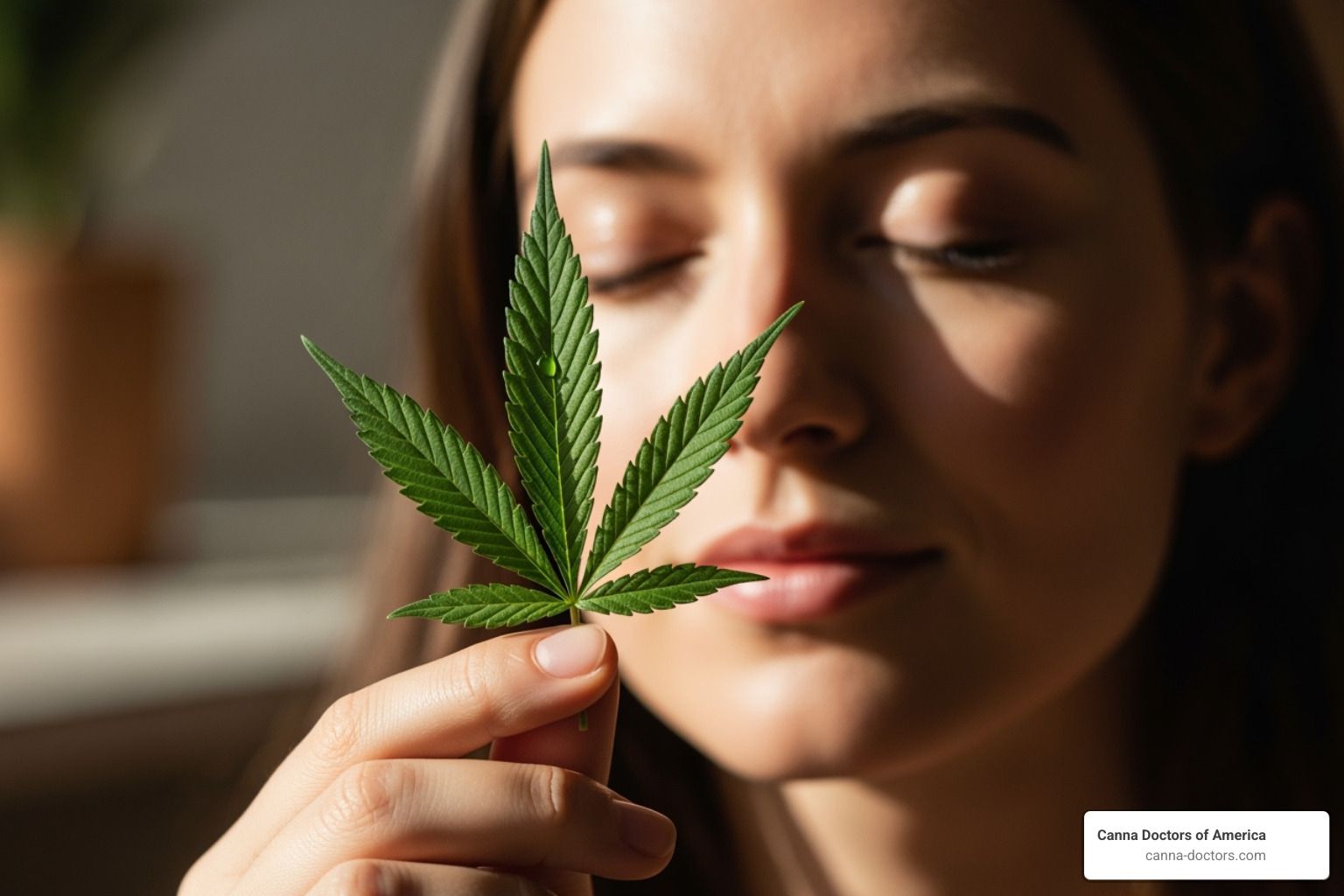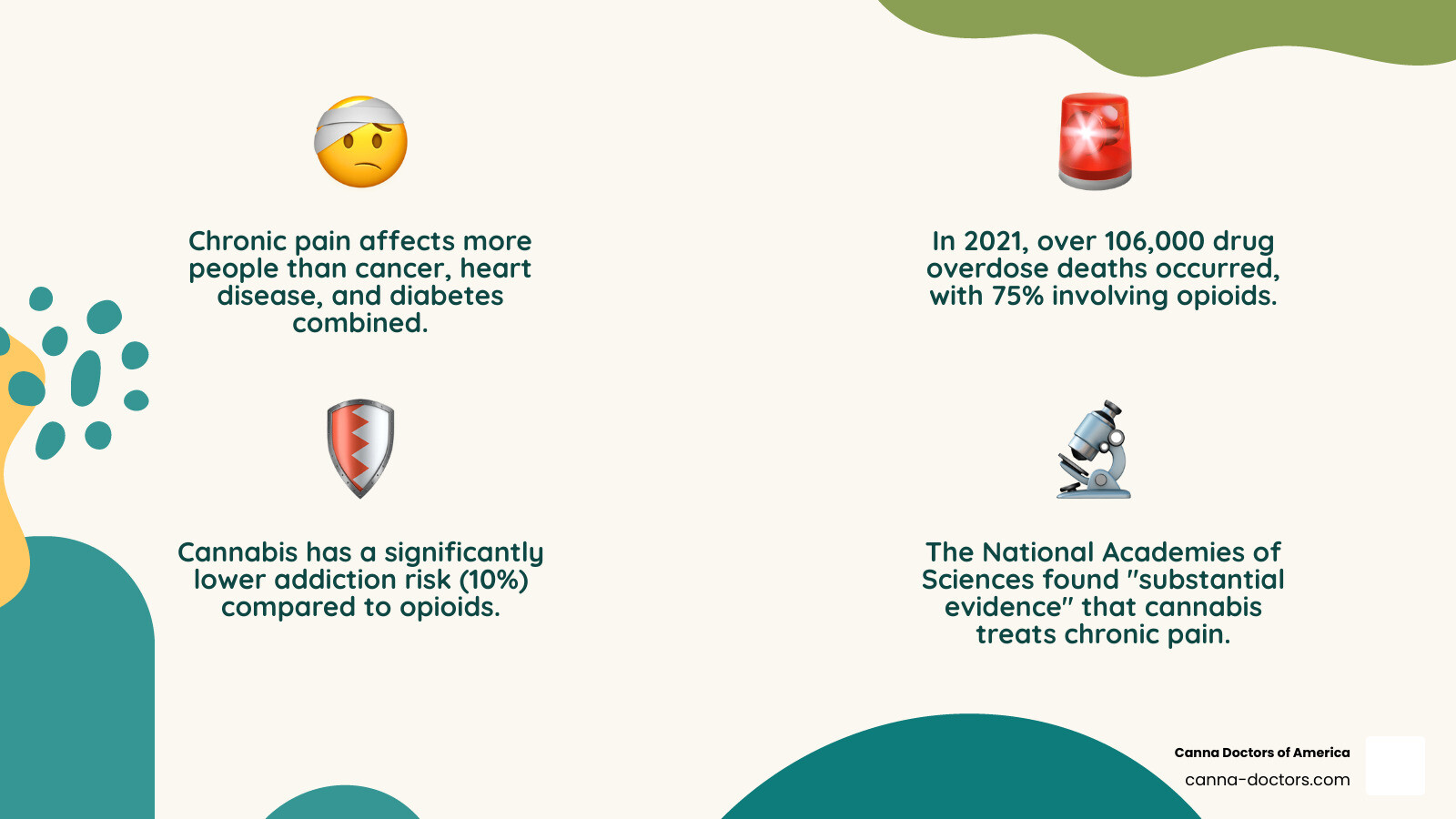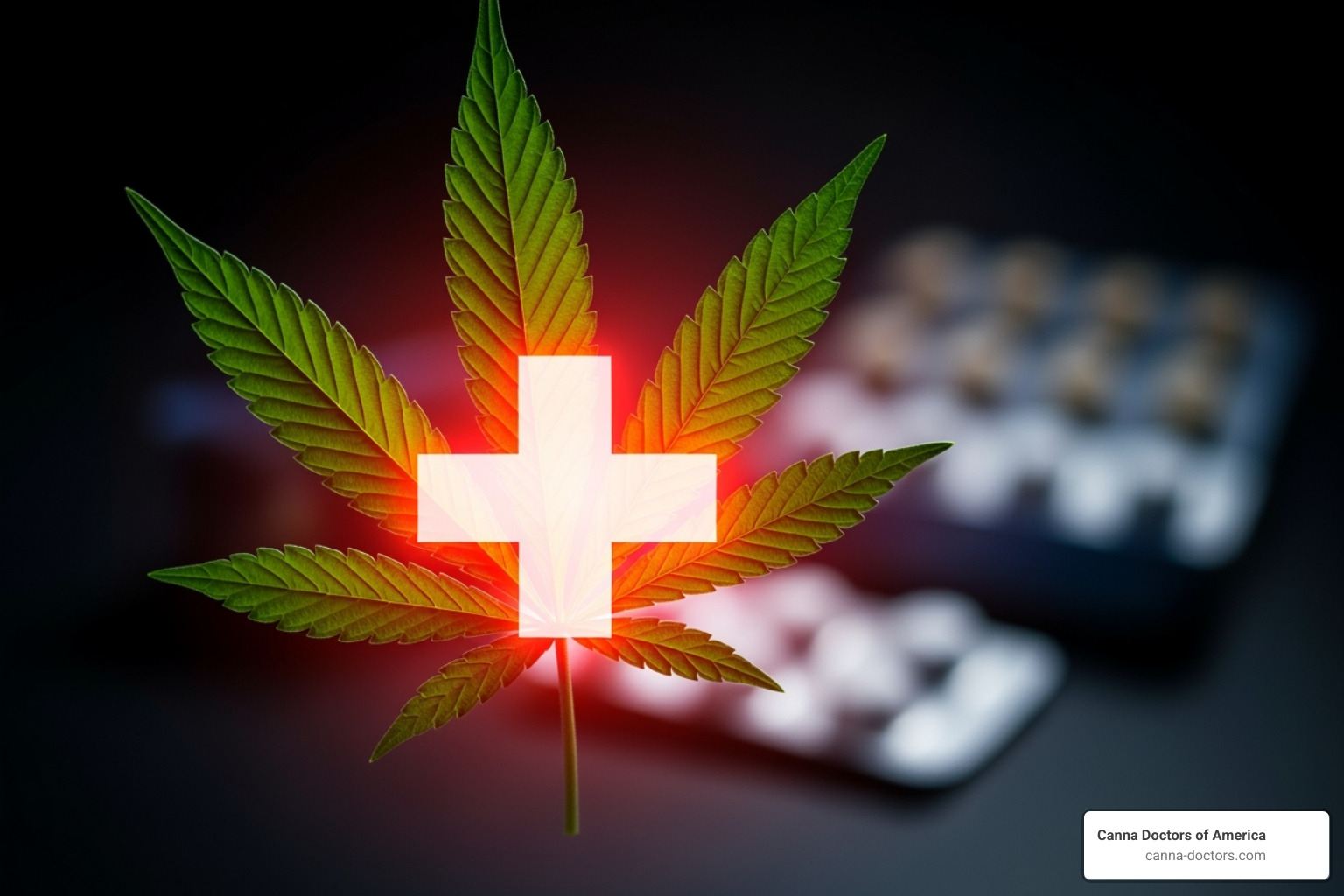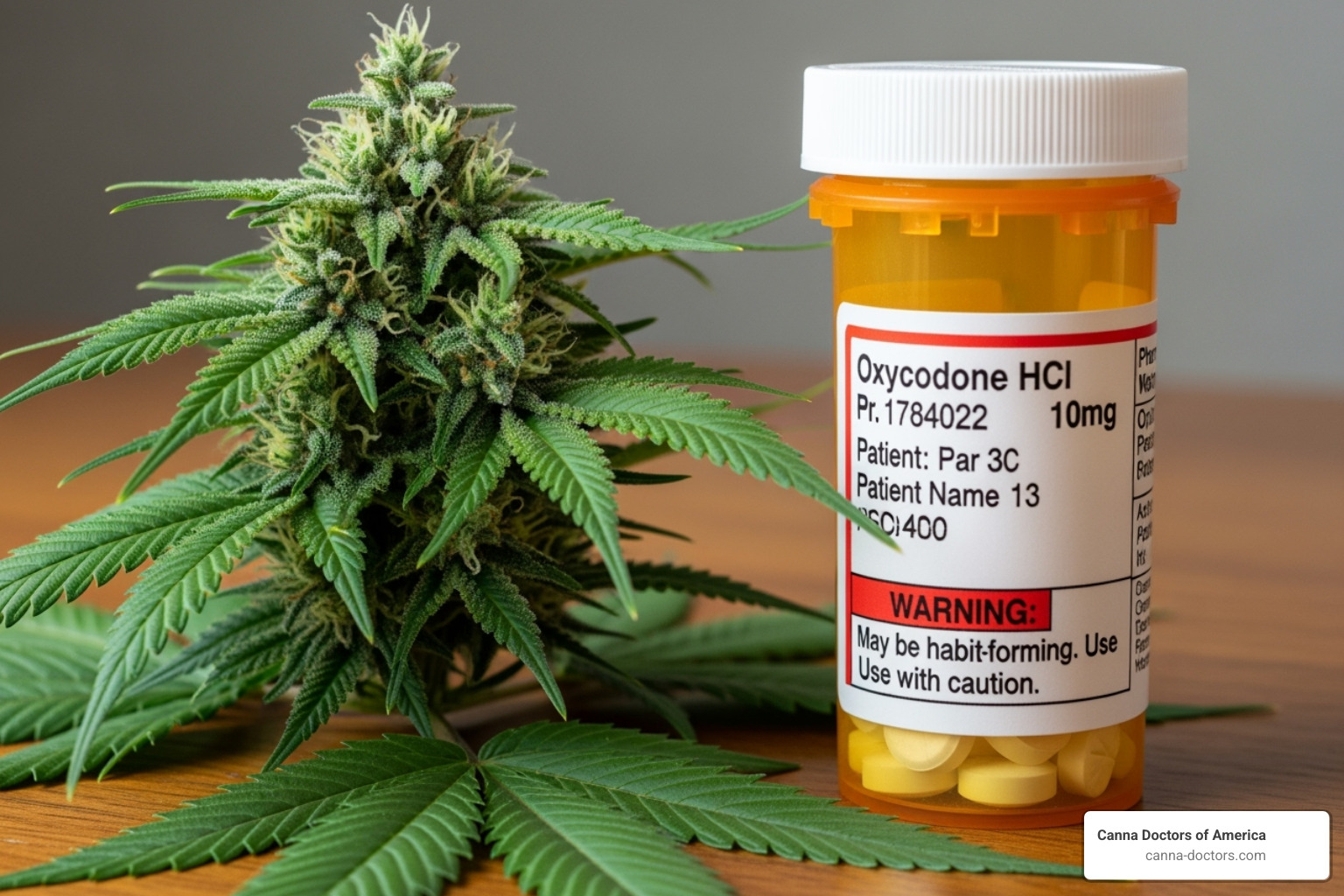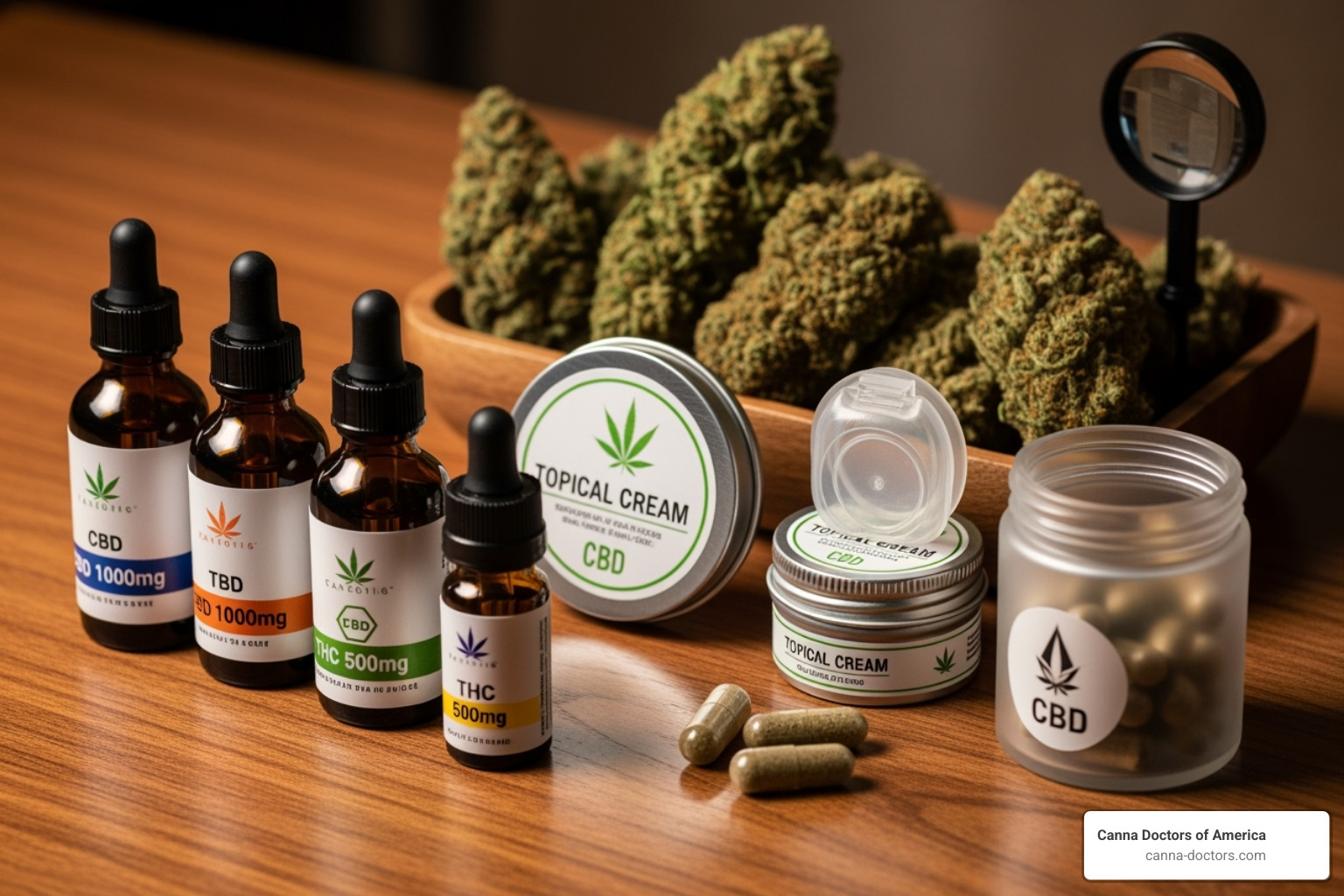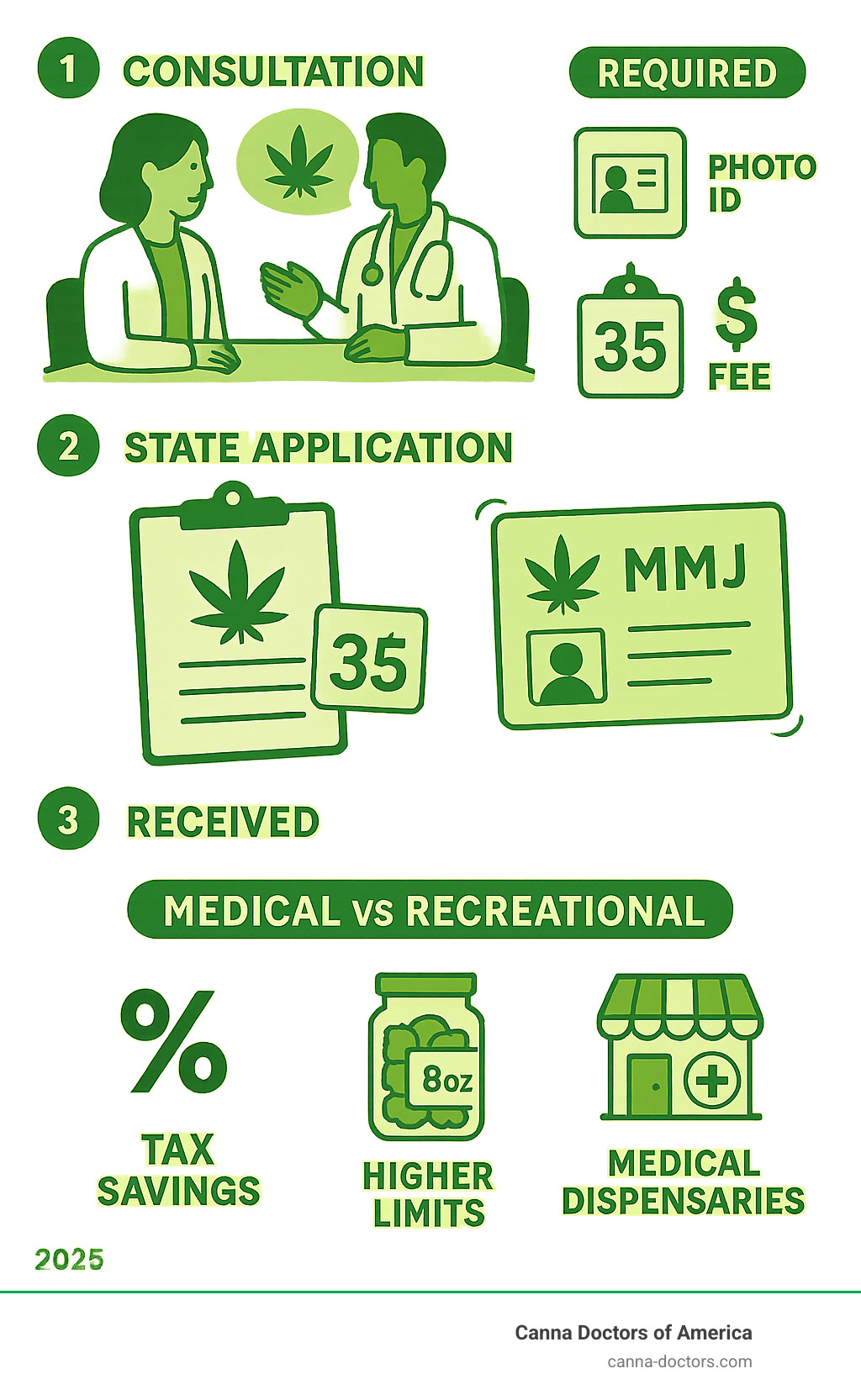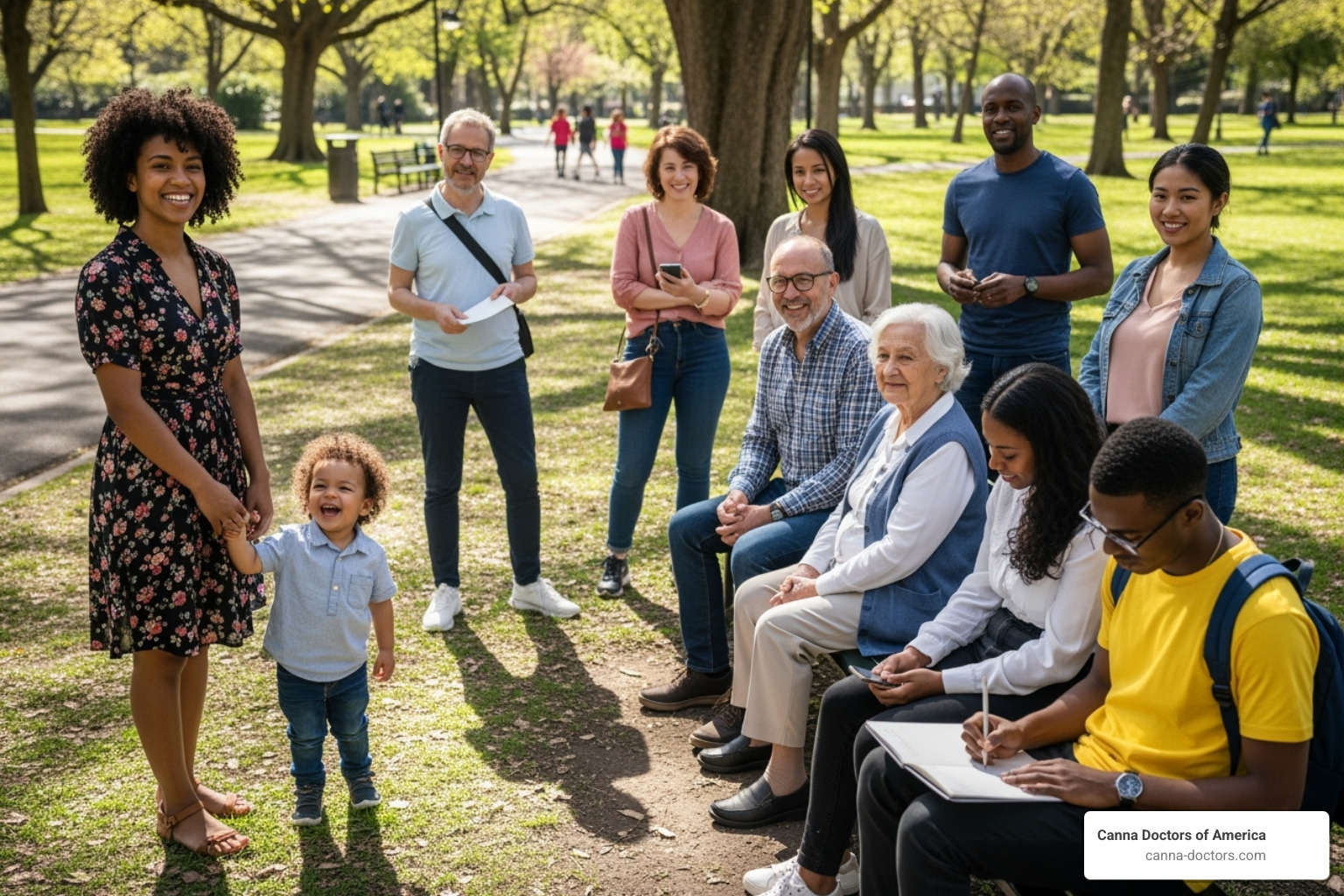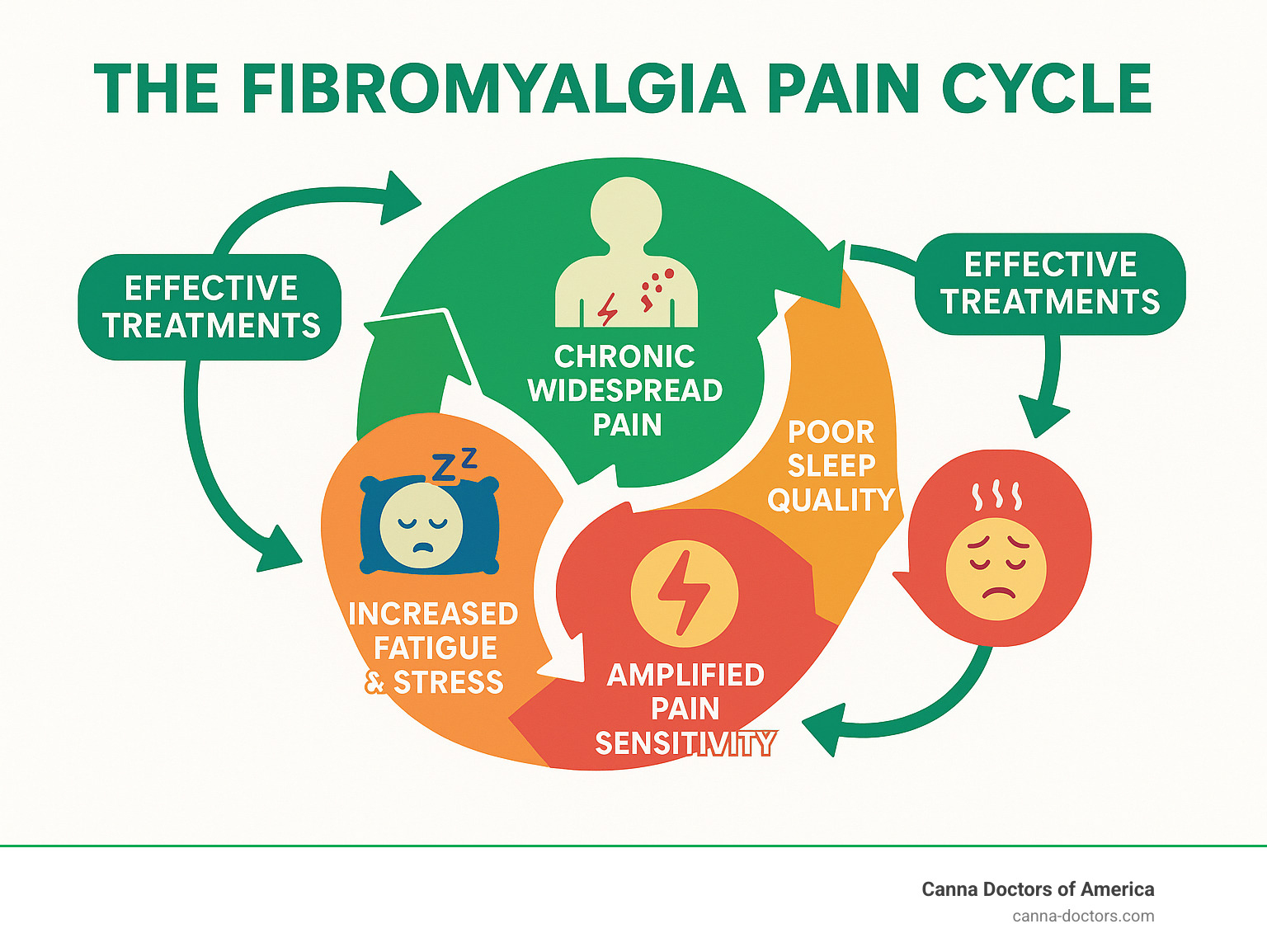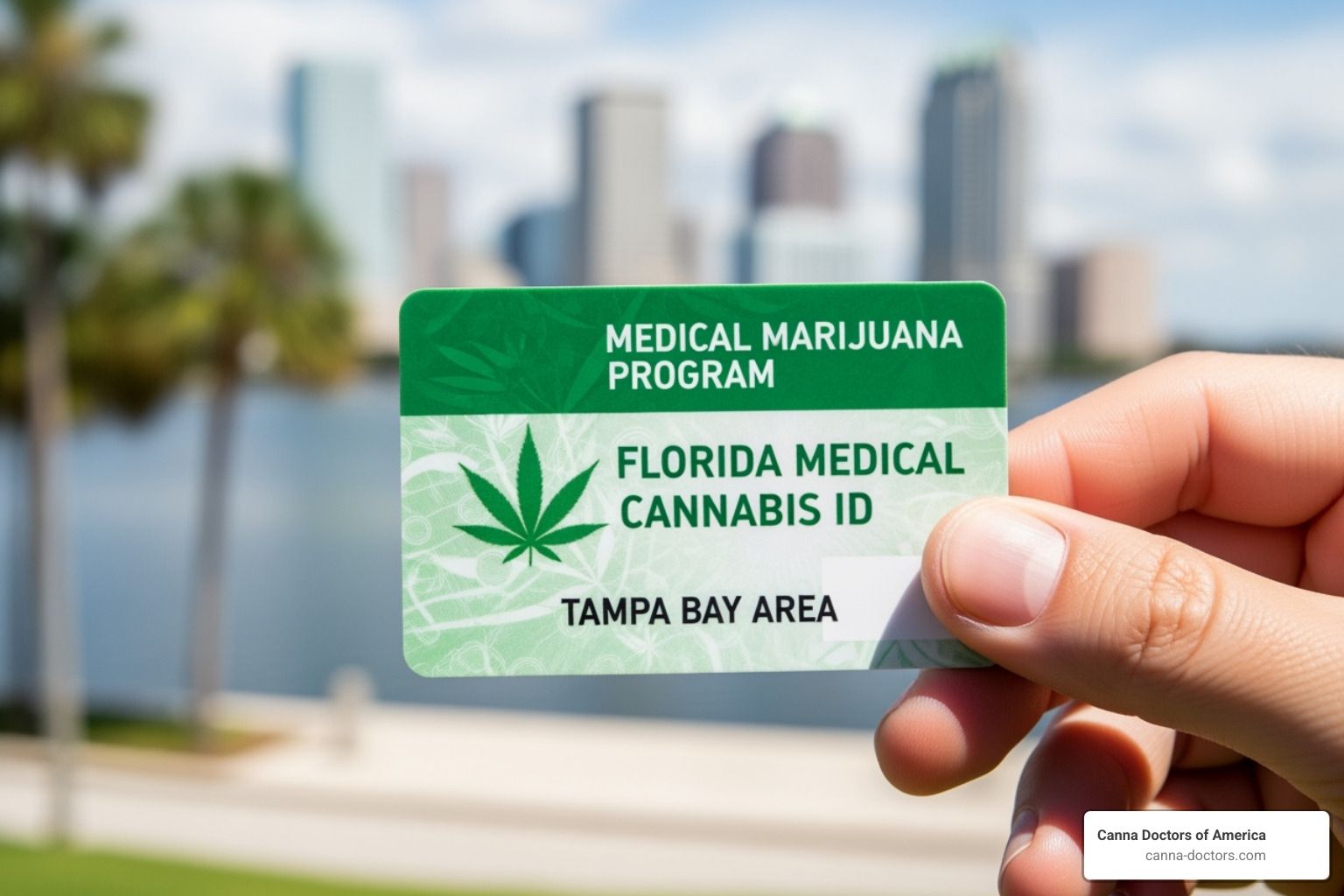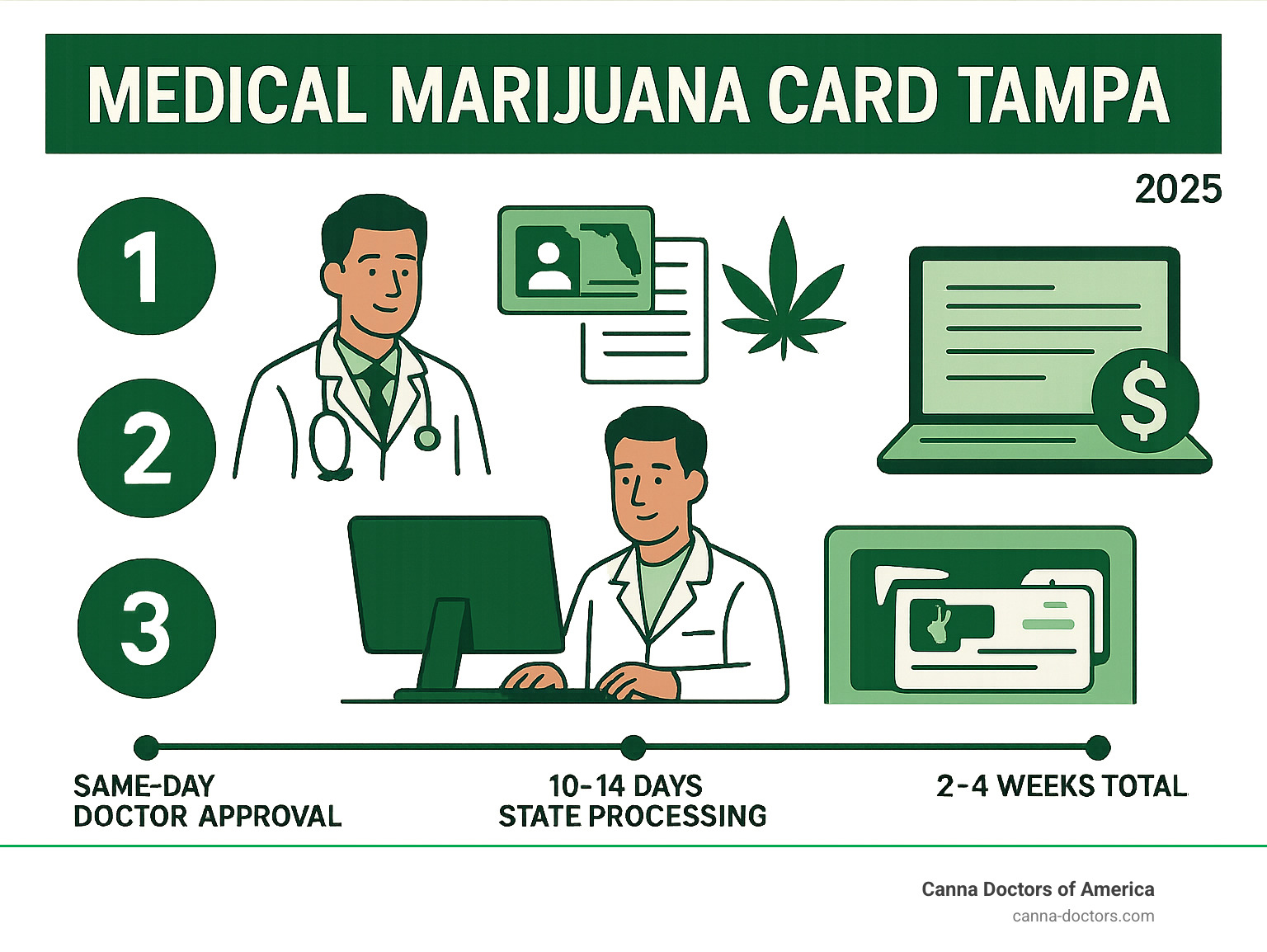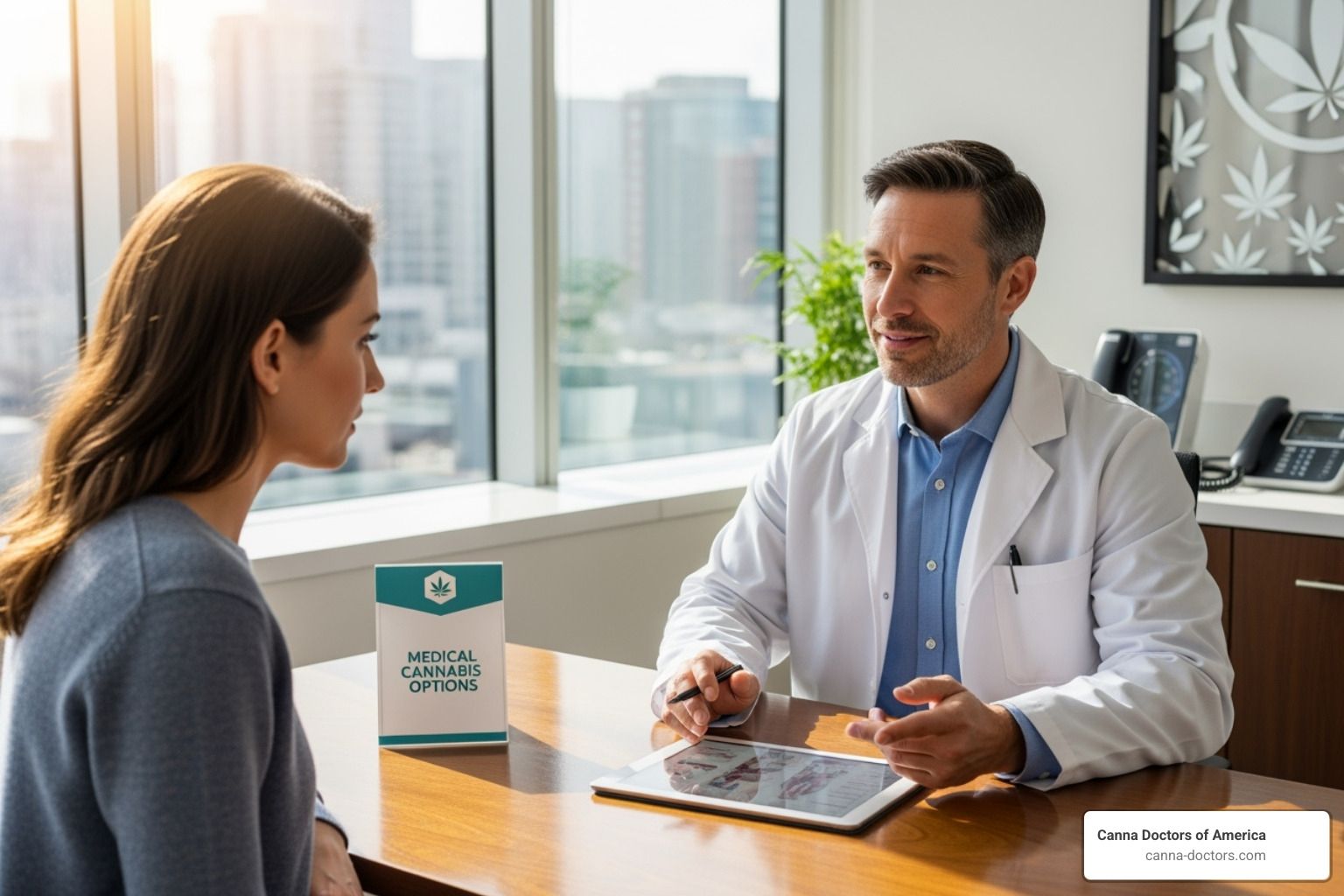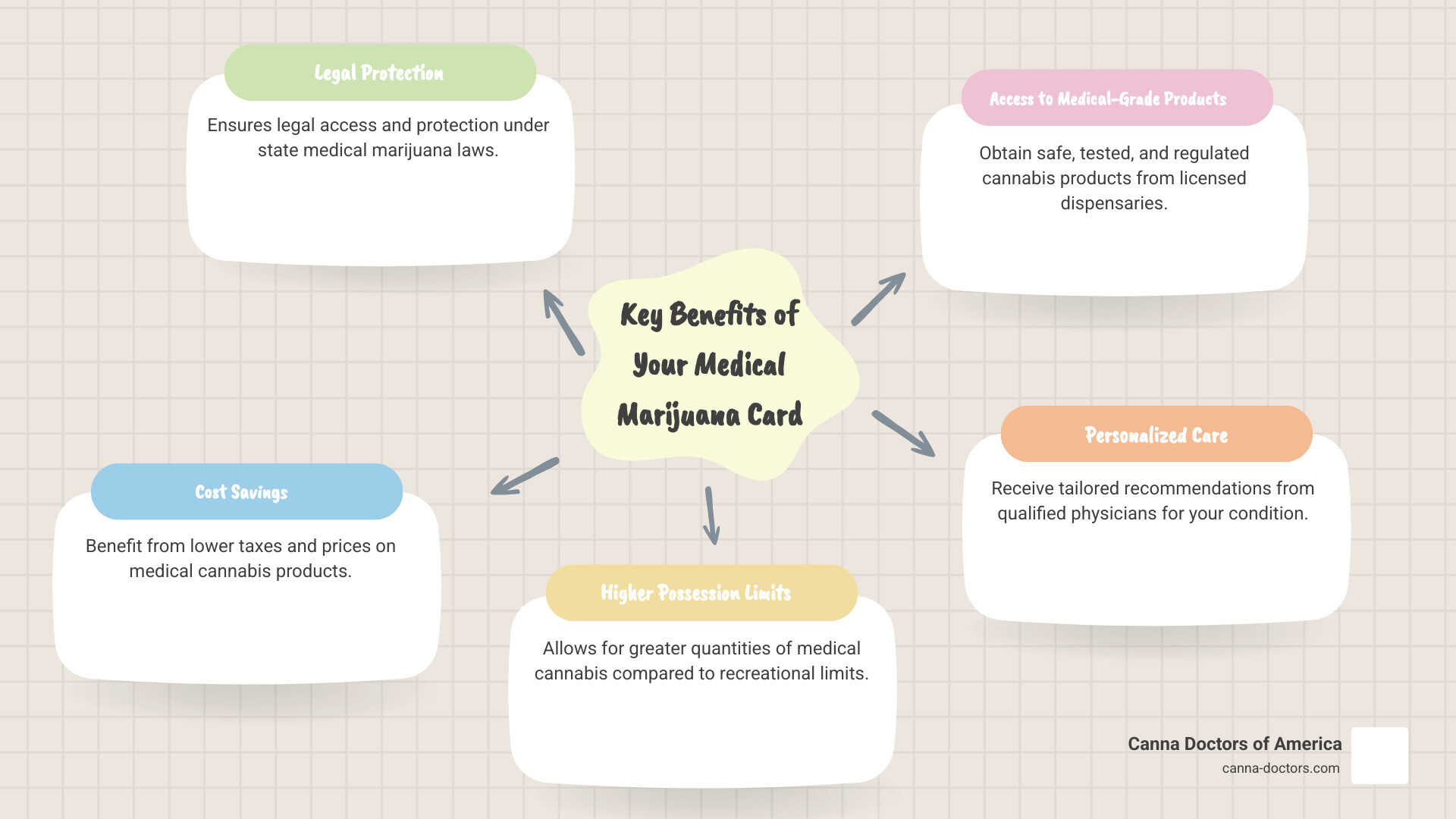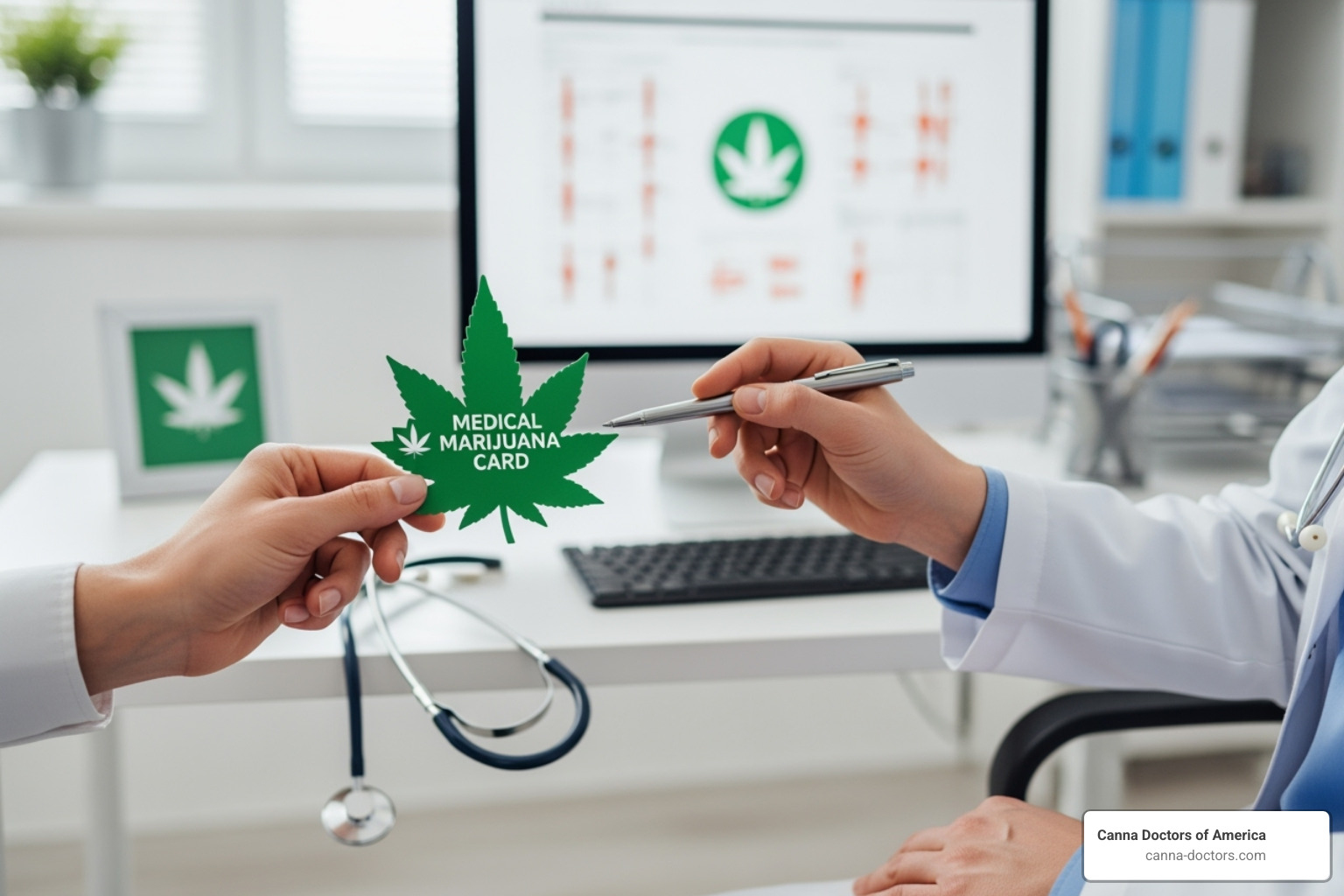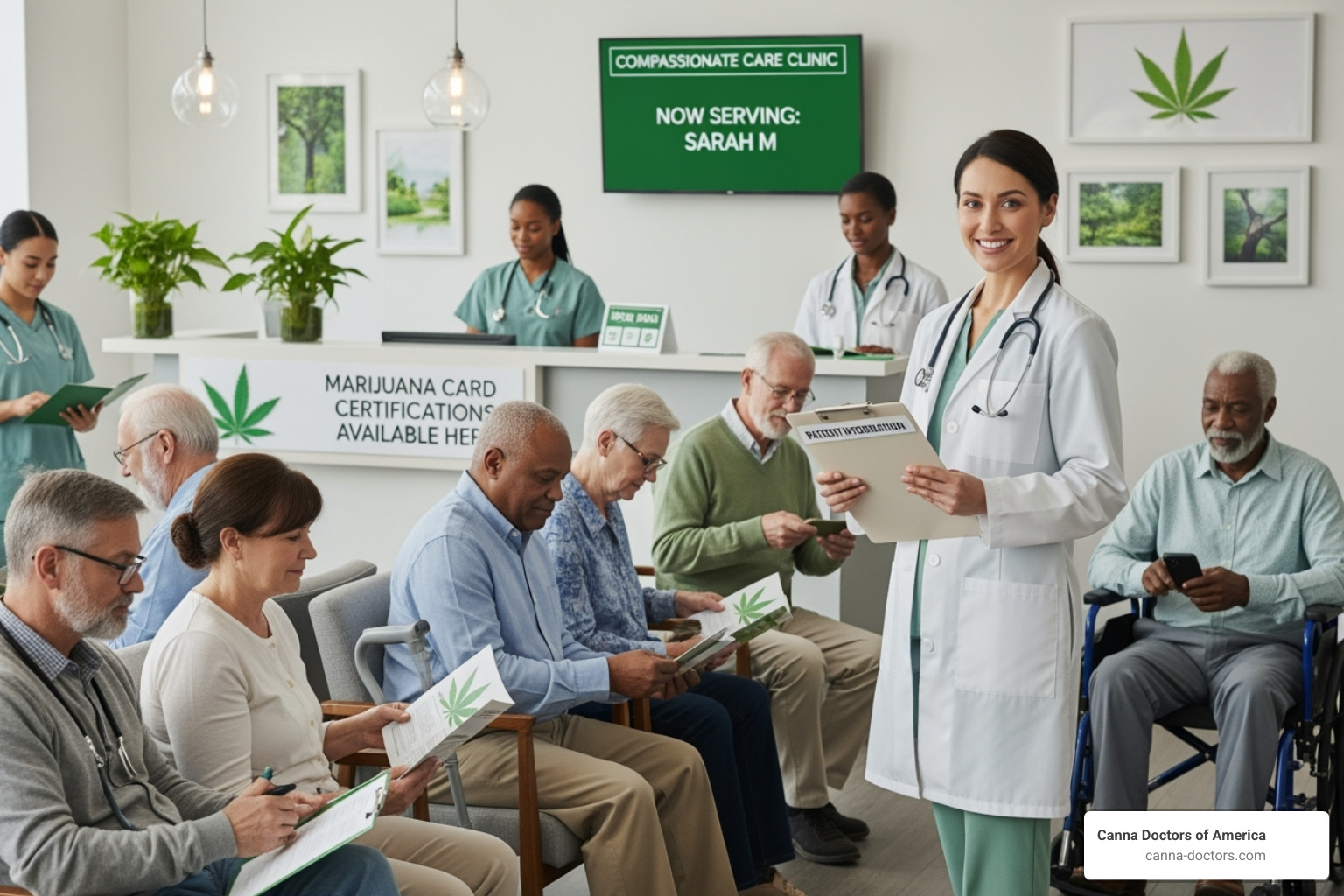Can Medical Marijuana Really Help Autism Symptoms?
The Growing Interest in Cannabis for Autism Treatment
Medical marijuana for autism is an increasingly discussed option for families seeking alternatives to traditional therapies. As conventional medications often come with significant side effects and behavioral therapies may not address all symptoms, many are exploring cannabis as a potential therapeutic tool. While research is emerging, early studies and anecdotal reports suggest it can help manage certain autism symptoms.
Quick Facts About Medical Marijuana for Autism:
- Current Research Status: Limited but promising observational studies
- Reported Benefits: Reduced anxiety, improved sleep, decreased aggression and self-injury
- Success Rates: Studies show 67-90% improvement in specific symptoms like anger outbursts and restlessness
- Primary Compounds: CBD (non-psychoactive) and THC (psychoactive) in various ratios
- Legal Status: Autism qualifies for medical marijuana in 14+ states, including Florida
- Medical Supervision: Required due to potential side effects and dosing complexities
Recent studies, particularly from Israel, have shown remarkable results, with over 90% of participants experiencing improvements in restlessness. Still, major medical organizations like the American Academy of Child and Adolescent Psychiatry remain cautious, calling for more rigorous clinical trials.
I’m Geoff Massey, Regional Director of Canna Doctors of America. I’ve worked extensively with families exploring medical marijuana for autism, and I’ve seen both its potential benefits and the critical need for proper medical guidance.
Explore more about medical marijuana for autism:
Understanding Autism Spectrum Disorder (ASD) and Its Conventional Treatments
To see why families explore medical marijuana for autism, it helps to understand the condition. Autism Spectrum Disorder (ASD) is a neurodevelopmental condition affecting communication, social interaction, and sensory processing. The term “spectrum” highlights its diversity; some individuals may have mild social difficulties, while others may be non-speaking and require significant daily support.
Doctors diagnose ASD based on two core areas: social communication challenges and restricted or repetitive behaviors. However, families often find the co-occurring conditions most distressing.
- Anxiety: Pervasive worry and fear of change or sensory stimuli are common.
- Seizures: About one in four people with autism experience seizures, according to scientific research on ASD comorbidities.
- Sleep Disorders: Chronic sleep issues can exhaust the entire family and worsen daytime behaviors.
- Other Challenges: Attention deficits, hyperactivity, and digestive problems are also frequent.
Conventional treatments offer support but have limitations. Behavioral, speech, and occupational therapies can teach crucial skills. For severe behaviors like aggression or self-injury, doctors may prescribe risperidone or aripiprazole, the only two FDA-approved drugs for autism-related irritability. These can be effective but often cause concerning side effects like weight gain and drowsiness.
Other medications are used “off-label,” but finding the right one can involve a lengthy process of trial and error. It’s this challenging reality—where conventional treatments fall short or their side effects are too severe—that leads many families to consider medical marijuana for autism as a potential alternative.
The Science Behind Medical Marijuana for Autism
The science behind medical marijuana for autism centers on the cannabis plant’s compounds, primarily Tetrahydrocannabinol (THC) and Cannabidiol (CBD). THC is psychoactive and known for its “high,” while CBD is non-psychoactive and praised for its potential to reduce anxiety, inflammation, and seizures.
These compounds interact with our body’s Endocannabinoid System (ECS), a vital network that regulates mood, sleep, appetite, and pain. The ECS works to maintain internal balance, or homeostasis. Emerging research suggests the ECS may function differently in individuals with autism, with some studies finding lower levels of anandamide (a key endocannabinoid) and altered receptor activity. The theory is that cannabis compounds might help restore balance to an underperforming ECS, easing autism-related symptoms. You can read more about the ECS and its role in autism pathophysiology from medical experts.
What Research Says About Medical Marijuana for Autism
Research into medical marijuana for autism has been limited by its federal classification as a Schedule I drug, which complicates large-scale clinical trials. Most current evidence comes from smaller observational studies and parent surveys, but the results are encouraging. Caregivers consistently report improvements in:
- Hyperactivity and restlessness
- Anxiety
- Aggression and self-injury
- Sleep problems
Statistics from these studies are compelling. For example, one major Israeli study found that 91% of cases showed improvement in restlessness and 90% saw reduced anger outbursts. While this data is not from randomized controlled trials, it reflects the real-world experiences of many families. You can learn more about the difficulties in this field from this NIDA report on cannabis research challenges.
Future Directions and Ongoing Clinical Trials
Fortunately, more rigorous research is underway. The scientific community recognizes the need for placebo-controlled, double-blind clinical trials to provide definitive answers on safety and dosing. Institutions like the University of California San Diego and NYU Langone Health are conducting such studies, primarily focusing on non-psychoactive compounds like CBD and Cannabidivarin (CBDV).
Furthermore, the DEA’s proposal to reclassify marijuana to Schedule III could significantly accelerate research. This shift would acknowledge its medical value and make it easier for scientists to conduct the comprehensive studies that families and doctors need.
Weighing the Potential Benefits Against the Risks
Considering medical marijuana for autism requires balancing hope with caution. There is no magic bullet, and what works for one child may not work for another. A personalized, medically supervised approach is essential.
Potential Benefits for ASD Symptoms
For many families, the benefits of medical cannabis can be life-changing, significantly improving quality of life. The most commonly reported improvements include:
- Managing Severe Behaviors: Many parents report a dramatic reduction in meltdowns, aggression, and self-injurious behaviors that previously dominated family life.
- Reducing Irritability and Anxiety: Cannabis, particularly CBD, can help calm a nervous system that is often in a state of high alert, making daily activities less overwhelming.
- Improving Sleep: Restful sleep is a game-changer. When a child sleeps through the night, the entire family functions better, and improved daytime behavior often follows.
- Enhancing Focus and Attention: Some families notice better concentration, which can make therapies and learning more effective.
These anecdotal reports, while not a substitute for clinical data, highlight the profound impact that symptom relief can have.
Potential Risks of Medical Marijuana for Autism in Children
Being responsible means being honest about the risks, especially when treating children and adolescents with developing brains.
Common, manageable side effects include:
- Sleepiness or drowsiness
- Changes in appetite (increase or decrease)
- Paradoxical restlessness or irritability
CBD-dominant products generally have fewer side effects, while THC-containing products can also cause dry mouth, dizziness, or anxiety.
The more significant concerns involve long-term effects on the developing brain. While medical use is different from recreational use, research on adolescent cannabis use points to potential risks like reduced cognitive function. High-THC products are also associated with a risk of psychotic disorders in vulnerable adolescents.
This is why medical supervision is non-negotiable. Dosing cannabis is complex and highly individualized. A qualified physician must guide the process of finding the right product and dose, starting low and adjusting gradually. Attempting to do this alone is unsafe and can lead to negative outcomes. The potential benefits are real, but they must be pursued with professional medical support.
Practical Guidance for Families Considering Cannabis Treatment
Navigating medical marijuana for autism requires a step-by-step approach. With the right guidance, families can make informed decisions that prioritize their child’s well-being.
Legal and Regulatory Landscape
Medical marijuana laws vary significantly by state. In Florida, the legal framework is well-established. Autism is a qualifying condition, provided a qualified physician determines that the patient has debilitating symptoms that could be alleviated by medical cannabis.
To get a medical marijuana card in Florida, you must consult with a state-certified physician. Families have several options for this, from specialized clinics like Canna Doctors of America, Marijuana Doctor, or CannaMD, to physicians affiliated with large dispensary networks. The physician’s role is to evaluate the patient, provide a medical recommendation if appropriate, and enter them into the state’s patient registry. While cannabis remains a Schedule I drug federally, this does not typically affect patients who comply with state law.
Forms, Dosing, and Drug Interactions
Choosing the right product and dose is a critical part of the process. Smoking and vaping are strongly discouraged for children.
- Forms: Tinctures and oils are preferred for children as they allow for precise, controllable dosing. Edibles and capsules are other options, but their delayed and prolonged effects require extra caution to prevent accidental overdosing. Topicals are for localized issues and won’t address behavioral symptoms.
- Dosing: The guiding principle is “start low and go slow.” Begin with the smallest possible dose and increase it gradually over days or weeks under medical supervision. This helps find the effective dose that minimizes side effects.
- Ratios: Most protocols for autism start with CBD-dominant formulations (e.g., 20:1 CBD to THC) to reduce the risk of psychoactive effects. A small amount of THC can sometimes be beneficial, but this must be carefully managed by a doctor.
- Drug Interactions: Cannabis can interact with other medications. It may alter how the body processes seizure medications or amplify the effects of sedatives and antipsychotics. Close physician monitoring is essential to manage these interactions and adjust dosages of all medications as needed. Specialized clinics like Canna Doctors of America work with families to create safe treatment plans that complement existing therapies.
Frequently Asked Questions about Cannabis and Autism
Families exploring medical marijuana for autism often have similar questions. Here are answers to the most common concerns.
Is CBD or THC better for autism symptoms?
There’s no single answer; the best approach depends on the child’s specific symptoms. CBD-dominant formulations are the typical starting point. CBD is non-psychoactive and has shown promise for reducing anxiety, seizures, and sleep issues with fewer side effects. However, a small, controlled amount of THC can sometimes be crucial for managing severe behaviors, pain, or appetite issues. Some families also find that whole-plant extracts, which leverage the “entourage effect” (compounds working together), are more effective than isolated CBD. Professional medical guidance is essential to determine the right balance.
Is medical marijuana a cure for autism?
No. Medical marijuana is not a cure for autism. ASD is a lifelong neurodevelopmental condition. Cannabis is a potential tool for managing some of the most challenging co-occurring symptoms, such as meltdowns, anxiety, or aggression. The goal is to improve quality of life, not to change who your child is.
How do I talk to my child’s doctor about medical marijuana?
This conversation can be intimidating, but being prepared helps. Here’s how to approach it:
- Be Specific: Keep a symptom diary and present clear data. Instead of saying “he’s aggressive,” say “he has 3-4 aggressive outbursts daily that last 20 minutes.”
- Bring Research: Share articles like this one to show you’ve done your homework on both the benefits and risks.
- Focus on Impact: Explain how specific symptoms (e.g., lack of sleep, self-injury) are affecting your child and family.
- Ask Direct Questions: Inquire about their experience with medical cannabis and their specific concerns for your child.
If your current doctor is not supportive or knowledgeable, don’t give up. The medical community is evolving, and there are many physicians and specialized clinics in Florida, such as Canna Doctors of America, Marijuana Doctor, and CannaMD, who are experienced in cannabis-based care and can provide the expert guidance you need.
A Path Forward: Making an Informed Choice
The journey into medical marijuana for autism is one of balancing promising evidence with known risks. The research is encouraging but not yet definitive, and the decision to explore this path is deeply personal, often born from a desire to find relief when other treatments have fallen short.
This is why professional medical guidance is not just recommended—it’s essential. Navigating cannabinoid ratios, dosing, side effects, and drug interactions is a complex medical task that should never be done alone. Just as you would rely on a doctor to manage other powerful medications, the same standard of care must apply to medical cannabis.
While Florida offers several options for obtaining a medical marijuana recommendation, finding a trusted partner who provides ongoing support is key to a safe and effective treatment plan. At specialized clinics like Canna Doctors of America and Marijuana Doctor, the focus is on providing ongoing support, with the understanding that families need more than just a card; they need expert consultation and compassionate care.
Clinics across Florida, including Canna Doctors of America’s locations in Tampa, St. Petersburg, and Clearwater, are dedicated to making access to medical cannabis easy, transparent, and safe. They provide the professional oversight needed to explore this option with confidence.
If you are considering this path, we encourage you to take the next step responsibly. Get your medical marijuana card with a professional consultation to determine if this treatment could improve your family’s quality of life. You don’t have to make this decision in isolation; we are here to help you explore whether medical marijuana for autism is the right choice, with your loved one’s safety as our highest priority.
